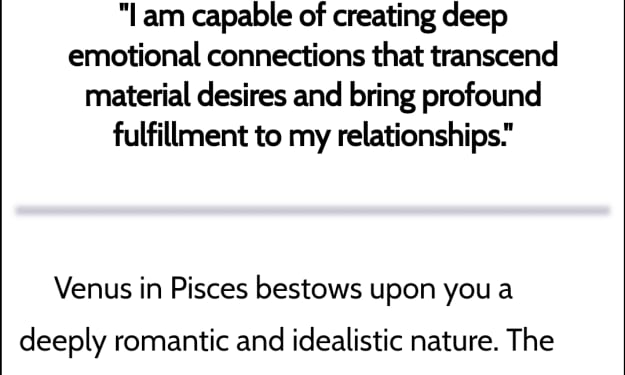
Many people experience body aches, choking, depression, and even a near-death experience after a breakup, and these feelings are not hypocritical. According to researchers at Columbia University, the pain we feel when we're broken in love can be as painful as a burn or a broken arm. For a fully invested relationship, lovelorn is definitely not a small thing.
Many people look back on themselves after a breakup and feel like a complete idiot for texting, calling, checking his social network, and stopping him downstairs when he couldn't get in touch.
Looking back, I can't believe why I was so humble and how I could do such a healthy act. But I would say that you were no fool -- there was an explanation for all of your actions.
I'd like to take a neuroscience step and say, why do we suffer so much after a breakup, why do we have no control over our mental health practices, and what can we do to heal faster, rebuild our lives, and prepare for the all-important process of getting back together?
Dr Rhonda Freeman, a neuroscientist, suggests that at least six systems in our brains are affected from the time we fall in love to the time we fall out. I'm going to share with you today three of the most important brain systems that allow us to engage in healthy behaviors after a breakup.
The first is the best known: the reward system.
1. Reward systems
The addictive nature of love is not a metaphor, it's backed up by science. Anthropologist Helen Fisher, Ph.D., and others believe that love is an addictive behavior from the perspective of brain science. How can I put it?
When we first fall in love, the brain's reward system is activated, dopamine levels rise, and we experience extreme pleasure. The reward system, as the name suggests, is that we perform an action in order to get some kind of reward. The reward system makes us feel: How happy we were in a relationship, and I want to be this happy forever.
That's when dopamine keeps pumping, making us want more, and in order to keep having the reward of that pleasure, the reward system instructs us to do it over and over again, which means investing more and more in the relationship, being crazy about the other person, doing things for the other person that we never thought we could do.
The euphoric, desperate state of being in love is, in terms of brain activity, similar to that of alcohol and drug addiction.
Since love is like addiction, the pain we feel when we lose love is just as painful as the withdrawal reaction of drug addiction.
And in the immediate aftermath of a breakup, dopamine, which controls our desire to "want," keeps rising, making us want it back even more.
After a while, dopamine levels drop and we experience feelings of loss, emptiness, depression and other very painful emotions.
2. Attachment system
One of the main hormones involved in the attachment system, which controls our feelings of connection and closeness in close relationships, is oxytocin.
Oxytocin, also known as the hormone of love, is released when a mother, for example, is feeding her baby, promoting a bond and trust between mother and child. In love, of course, this hormone of love is also produced between two people who are close together, making us feel warm, connected, and secure.
When we feel this connection with our loved ones, the boundaries between you and me are not so clear, and the concept of self slowly begins to change from "I" to "we."
Imagine that we are used to being one with each other, a flesh-and-blood part. And at the end of the relationship, when the ex suddenly breaks the bond, it's like a big piece of flesh is cut on us, and it's bloody, and we instantly feel that a part of us has been taken away, that we are no longer whole, and there is a very strong sense of loss.
The attachment system and the reward system work together to make us feel in the moment that we will never love again, that we will never meet someone better, and that we desperately, even without dignity, want to get our ex back.
Our brains trick us into thinking that we loved each other too much, because we loved each other too much.
But in fact, research shows that whether a happy relationship ends or a bad one, people who are disappointed in love have the same desire to not leave the other person and to get it back. In other words, it's not necessarily out of love that we're reluctant to give up on each other. It could just be that these hormones are messing up.
3. Cognitive system
Many people find that when they are lovelorn, they can't concentrate, forget things, can't think clearly about anything, and even make a lot of mental behaviors like being bowed down -- in fact, this is a normal phenomenon.
It's no wonder we lose our mental faculties when our brains prioritize most of our resources to our emotional system and allocate very little to our cognitive system under stressful stimuli like a breakup.
See, from a brain science perspective, right after a breakup, those happy hormones disappear, the brain can't adjust to the transition, and we have a series of intense pain responses. But over time, with the adjustment of our reason, this violent reaction will eventually calm down, and all our pain will slowly dissipate.
Some people can get over a breakup after a month or two, but others can still live with their ex for years -- whether you decide to get over it or move on with your life, we all need to recover from the negative situation first in order to make effective decisions.
So what can we do to cope better and recover faster? I share six steps with you here.
Step 1: Emotional recovery is the primary goal.
In the initial phase of a breakup, which can be a few days to a week, our primary goal is to focus on taking care of our emotional state. While we say that a breakup is a great opportunity for introspection and growth, it's important not to over-reflect on your problems in the relationship during the first few days of a breakup if your emotions are particularly intense.
As we said earlier, during intense mood swings, our brains devote resources to the emotional system, and we're not at the cognitive level to engage in any kind of deep thinking, otherwise we might fall into excessive rumination and get depressed.
At this stage, don't hold yourself back, let your emotions out, and do what you love to do (other than pestering your ex). Getting your emotional state back up is the primary goal.
This time you have one or a few trusted people around is important, their company can to some extent compensate for we just lost that part of the sense of intimacy and connection - don't need them to give any Suggestions or to evaluate your ex, just there with you, hug you, take you eat and drink, shopping with you to play the game is very enough.
Step 2: Get away from the stimulus.
We know that in the immediate aftermath of a breakup, our brains are in addict withdrawal mode, frantically luring us back to that lost high -- but we can choose not to be slaves to that desire.
If your emotional state is particularly volatile, it's important to minimize the direct stimulation of your brain with information about your ex. For example: completely blocking out your partner's friends for a while, not paying attention to anything related to them, not going to places you've been to -- getting away from stimuli can help us cool the dopamine-related cravings early on.
You might worry: Am I missing out on important information about my partner if I don't look at him?
But the truth is, if you're in a state of emotional slavery, you can't handle even important messages from your partner, and you're likely to screw things up and push them further away -- reminding yourself that getting your act together is the first step to a "revolution."
Step 3: Find healthy alternatives.
The neuroscientific explanation for the pain of a breakup is that the reward that makes you feel good is suddenly gone, and our brains are completely unable to adapt to it, resulting in extreme discomfort -- the idea being that by giving the brain the alternative reward it wants, we might be able to help ease the pain of withdrawal.
That's why many people get drunk or have a one-night stand after a breakup, because these activities stimulate dopamine, which gives us a good feeling and temporarily relieves our pain. But in the long run, such alternative rewards may not be very healthy.
We can try to find healthier alternatives, including hanging out with friends more often, getting a cat to cuddle and cuddle every day, going to karaoke, learning to dance, and meeting new friends who approve of you, all of which may re-release happy hormones in the brain.
Another very worth mentioning, is must exercise more - because exercise increases the levels of serotonin in the brain, we this is another way to make us happy hormone, can help us relieve anxiety and depression, improve cognitive level - which is why a lot of boys like to play with to vent after brokenhearted, this approach is correct and effective.
Step 4: Interrupt excessive rumination.
I believe that every friend who has ever been lovelorn will have this experience: even after I have broken off the relationship, I still wonder every day: did he ever love me? Will he come to see me? Is he seeing someone new?
This process is known in psychology as rumination, and excessive rumination can be dangerous. It can drag you into a spiral of negative emotions from which you will not only slow down your recovery, but can even make you depressed.
So when we get caught up in excessive rumination, how do we interrupt the process? In principle, anything that brings your attention back to the present moment will do.
Here are a few tips:
1. When we get stuck in rumination, the quickest and most direct way is to give ourselves a little direct stimulation. For example, we can picture a big Red Cross and a beeping alarm sound in our mind. Or take a bite of hot sauce or mustard and make yourself cry. Or grab a piece of ice from the fridge and hold it in your mouth until your teeth ache -- a direct stimulus that draws our attention straight back to the present moment and helps us quickly break the cycle of excessive rumination.
2. Another way is to separate our "brain" from your "self" -- to think of the brain as an object that has nothing to do with us. You are you and it is it. Every time the brain starts to ruminate, you can scold it (brain) impatiently: "Harm, how did you do it again!" Try it. It works.
3. After using excessive stimulus forced interruption ruminant, without too much we can do some requirements for cognitive, but can help you focus your attention, for instance his chest to refresh time, from the beginning to the end or touched a "secret garden" graffiti, or immediately call a good friend to go out to drink tea in the afternoon to distraction.
Step 5: Rebuild your habits.
Lovelorn not only early pain, often also very strong. When we think we have a relatively calm mood, it will come out of the blue to our emotional hell. For example, it is hard to avoid "touching the scene".
Partners who have been in love, more or less some common experience of the environment, such as punching in the red spot together, go to the city playground together, these shared memories of the environment will not disappear in our life.
We know that the reason we touch the scene is because we associate the place with that particular person, the ex. To change this association, we need to habitually associate the place with other people and things -- that is, to be in the same place as other people to create new experiences and memories, and to focus on the newly created memories instead of the previous ones.
Let's take a very simple example. For example, after a girl is brokenhearted, she will take her BFF to the milk tea shop that she often goes to with her boyfriend before, and one day she will also become good friends with the owner of the milk tea shop that is also a cat shovel excrement official. As time goes by, every time she wants to drink milk tea in this shop or pass by this shop, the girl immediately thinks of buying a cup for her best friend, or walking into the shop to say hello to the shopkeeper.
Others, like the fixed habits we picked up when we were with our exes, can't be continued after the breakup, leaving us with a huge void. As mentioned above, we can all create new habits to replace old ones.
Such as the original phone half an hour before going to bed at night and her boyfriend, then we can in the fixed time and girlfriends or parents a call half an hour, or to cat combing home half an hour, or fixed do their favorite thing, this point in time when new habits fixed last two or three weeks, our emptiness will have great improvement.
Step 6: Read some philosophy books.
In addition to books on relationships, I especially recommend reading books on philosophy and the meaning of life after a breakup. Many people will start to doubt themselves, question the meaning of love and even life after losing love.
When a person is down, it is often the time when he or she is most motivated to think about life. We might as well take advantage of this stage and turn it into an opportunity for growth. There are some good philosophical books that can help us to get out of our little love obsession and think about the bigger picture.
Of course, many people may not be able to read serious philosophy books, I recommend two books that discuss the meaning of life in the way of stories, which are very readable, you can try.
One was Tuesday With Morrie, by Mitch Albom; The other is Man's Search for Meaning by Victor Frank.






Comments
There are no comments for this story
Be the first to respond and start the conversation.